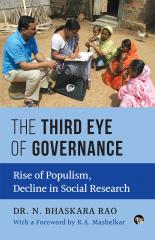‘A necessary, important, and highly readable book which must rival any yet published in shedding fresh light on nineteenth-century exploration.’—The Independent
‘A fascinating and historically important book about the frontier policies of the British empire, policies bearing some resonance even today as controversy over frontiers (the Durand Line, the McMahon Line) in the region continues.’—American Historical Review
‘An excellent and very well-researched book; for the first time the explorations of the Pundits have been recorded in one book, and we can be grateful to Derek Waller for having done it so well.’—USI Journal
On a September day in 1863, Abdul Hamid entered the Central Asian city of Yarkand. Disguised as a merchant, Hamid was in fact an employee of the Survey of India, carrying concealed instruments to enable him to map the geography of the area. Hamid did not live to provide a first-hand account of his travels. But he was the advance guard of an elite group of Indian trans-Himalayan explorers—recruited, trained, and directed by the officers of the Great Trigonometrical Survey of India—who were to traverse much of Tibet and Central Asia during the next thirty years.
Derek Waller presents the history of these intrepid explorers—Nain, Mani, Kalian and Kishen Singh, Mirza Shuja, Hyder Shah, Ata Mahomed, Abdul Subhan, Mukhtar Shah, Hari Ram, Rinzing Namgyal, Ugyen Gyatso, Nem Singh, Lala and Kintup—who came to be called ‘native explorers’ or ‘pundits’ in the public documents of the Survey of India. In the closed files of the government of British India, however, they were given their true designation as spies. As they moved northward within the Indian subcontinent, the British demanded precise frontiers and sought orderly political and economic relationships with their neighbours. They were also becoming increasingly aware of and concerned with their ignorance of the geographical, political, and military complexion of the territories beyond the mountain frontiers of the Indian empire. This was particularly true of Tibet.
Though use of pundits was phased out in the 1890s in favour of purely British expeditions, they gathered an immense amount of information on the topography of the region, the customs of its inhabitants, and the nature of its government and military resources. They were able to travel to places where virtually no European could venture, and did so under conditions of extreme deprivation and great danger. They are responsible for documenting an area of over one million square miles, most of it completely unknown territory to the West. One of the first books to be written about them, The Pundits is a work of exceptional scholarship.





